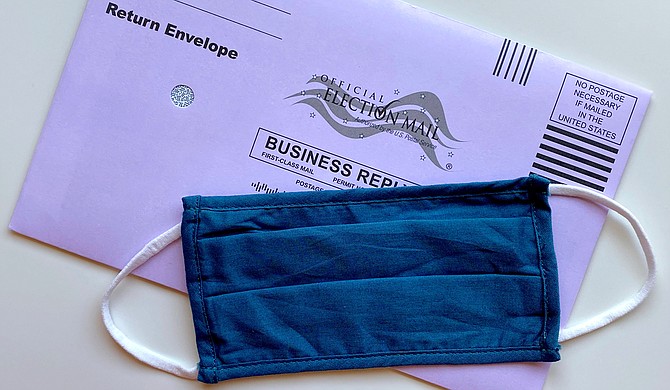Voting rights groups filed papers Thursday asking a federal judge to temporarily lift some limitations in Mississippi’s absentee voting process. They said doing so would ease some safety concerns during the coronavirus pandemic. Photo courtesy Tiffany Tertipes on Unsplash
JACKSON, Miss. (AP) — Voting rights groups filed papers Thursday asking a federal judge to temporarily lift some limitations in Mississippi’s absentee voting process. They said doing so would ease some safety concerns during the coronavirus pandemic.
Mississippi requires absentee ballot applications to be notarized. The state also requires most people to provide an excuse to vote absentee, such as being out of town on Election Day.
The groups are asking a judge to block those two requirements, which they say are unconstitutional. They are also asking a judge to provide a clear process for what happens when election officials say they see inconsistencies in a voter’s signature.
The Lawyers’ Committee for Civil Rights Under Law and the Southern Poverty Law Center made the new request Thursday in a lawsuit they originally filed Aug. 27 on behalf of three Mississippi residents, the League of Women Voters of Mississippi and the Mississippi State Conference of the NAACP.
The lawsuit says Mississippi election laws could force people to choose between their health and their constitutional right to vote. It also says that the defendants — Mississippi Secretary of State Michael Watson and Attorney General Lynn Fitch — “have failed to take necessary steps to protect Mississippi voters’ fundamental right to vote despite the public health risks of voting in person during the COVID-19 pandemic.”
Jennifer Nwachukwu, an attorney at the Lawyers’ Committee for Civil Rights Under Law, said in a statement Thursday that Watson and Fitch need to ensure that Mississippi residents can vote safely.
“These restrictions are excessively burdensome on the constitutional right to vote, and will affect communities of color, who have been disproportionately impacted by the pandemic, and therefore need an effective and fair way to vote by absentee ballot," Nwachukwu said.
Mississippi does not allow widespread early voting. Instead, state law says absentee voting is available to anyone 65 or older, or to voters of any age who are permanently disabled or will be out of their home county on Election Day. People who have to work on Election Day when the polls are open also are allowed to vote absentee.
Legislators tweaked the law this year with provisions that expire at the end of 2020. Those allow absentee voting by someone with a temporary or permanent disability that may include “a physician-imposed quarantine due to COVID-19” or by a person who is “caring for a dependent that is under a physician-imposed quarantine due to COVID-19.”
The lawsuit in federal court is similar to one filed Aug. 11 in state court by the American Civil Liberties Union of Mississippi and the Mississippi Center for Justice, which was also brought against Watson.
The state court lawsuit says Mississippi’s absentee voting law is confusing and could be applied inconsistently during the pandemic. A judge issued a statewide declaration Sept. 2 that would allow people to vote absentee if they have health conditions that could put them in extra danger because of COVID-19. State officials have asked the Mississippi Supreme Court to reverse that decision.
Copyright Associated Press. All rights reserved. This material may not be published, broadcast, rewritten, or redistributed.



Comments
Use the comment form below to begin a discussion about this content.